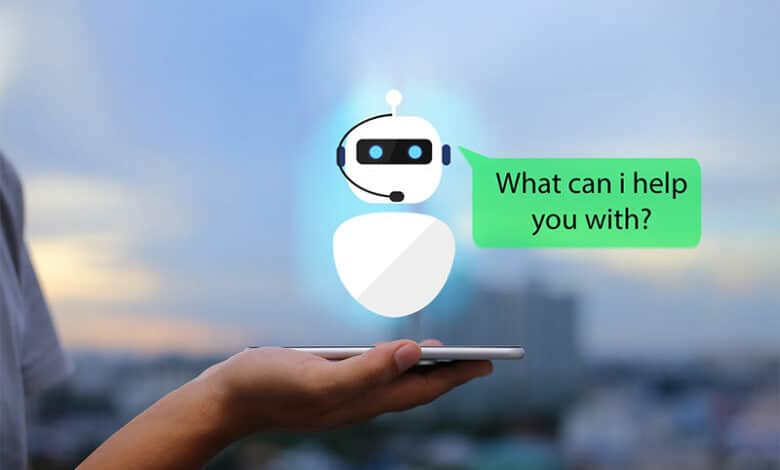Why AI Chatbots are the Future of Customer Service

As technology advances, companies are constantly seeking new ways to improve their customer service experience. One of the latest innovations in this area is the use of AI chatbots. AI chatbots are virtual assistants that can help customers with their inquiries, orders, and other concerns. In this article, we will explore the benefits of AI chatbots and why they are the future of customer service.
What is AI Chatbots?
AI chatbots are virtual assistants that use artificial intelligence to converse with customers via a chat interface. They are designed to answer customer queries, provide solutions to their problems, and help them complete transactions without the need for human intervention. AI chatbots are trained using machine learning algorithms and natural language processing to understand and respond to customer queries. They can be integrated with a company’s website, mobile app, social media accounts, and other digital channels.
The Benefits of AI Chatbots for Customer Service
24/7 Availability
One of the biggest advantages of AI chatbots is their ability to provide 24/7 customer service. They can handle inquiries and support requests at any time of the day, even during weekends and holidays. This ensures that customers receive prompt assistance and reduces the frustration of having to wait for business hours to get help.
Faster Response Times
AI chatbots can process and respond to customer queries much faster than human agents. They can analyze customer requests, search through databases, and provide relevant information within seconds. This reduces customer waiting times and improves overall response times.
Cost-Effective
AI chatbots are a cost-effective solution for customer service. They require less maintenance than human agents, do not require breaks or vacation time, and can handle multiple inquiries simultaneously. This reduces staffing costs and frees up human agents to handle more complex issues.
Personalization
AI chatbots can personalize their responses based on the customer’s history, preferences, and behavior. They can use data from past interactions to provide more relevant information and recommendations. This improves the customer experience and enhances customer loyalty.
Scalability
AI chatbots can handle an unlimited number of customer inquiries simultaneously, making them highly scalable. They can also be easily customized and adapted to meet the changing needs of the business.
AI Chatbots vs. Human Customer Service Agents
While AI chatbots offer many benefits, they cannot replace human customer service agents entirely. Here are some key differences between the two:
1. Consistency
AI chatbots can provide consistent responses to customers every time, whereas human agents may vary in their responses. This ensures that customers receive the same level of service and information regardless of the time of day or who is handling their inquiry.
2. Language Support
AI chatbots can support multiple languages and dialects, making them ideal for companies with a global customer base. Human agents may not be fluent in all languages, and language barriers can often result in misunderstandings and delays.
3. Emotional Intelligence
Human agents have emotional intelligence and can empathize with customers, providing a personal touch to the service experience. AI chatbots, while they can be personalized, cannot match the emotional intelligence of a human agent. This makes human agents better equipped to handle complex and emotionally charged situations.
How AI Chatbots are Changing Customer Service
AI chatbots are revolutionizing the customer service industry by improving the speed, accuracy, and convenience of customer interactions. They are making it easier for customers to get the information and support they need without having to wait for a human agent. As a result, companies can reduce their staffing costs and focus on providing high-quality service in more complex situations.
Challenges of Implementing AI Chatbots in Customer Service
While AI chatbots offer many benefits, there are also challenges associated with their implementation. Here are some key challenges:
1. Integration with Existing Systems
Integrating AI chatbots with existing systems can be a complex process. It requires a deep understanding of the company’s infrastructure and data architecture to ensure seamless integration.
2. User Acceptance
Some customers may be hesitant to use AI chatbots, preferring to speak with a human agent. Companies need to educate their customers on the benefits of using AI chatbots and provide adequate training to ensure a smooth transition.
3. Data Privacy and Security
AI chatbots require access to sensitive customer data, which raises concerns about data privacy and security. Companies need to ensure that their AI chatbots are compliant with relevant data protection regulations and have robust security measures in place.
Conclusion
AI chatbots are the future of customer service. They offer a range of benefits, including 24/7 availability, faster response times, cost-effectiveness, personalization, and scalability. While they cannot replace human agents entirely, they can handle a large volume of inquiries and free up human agents to handle more complex issues. Implementing AI chatbots in customer service requires careful planning and execution, but the benefits far outweigh the challenges.
FAQs
Will AI chatbots replace human customer service agents?
No, AI chatbots cannot replace human agents entirely. They can handle a large volume of inquiries and free up human agents to handle more complex issues.
Can AI chatbots provide personalized service?
Yes, AI chatbots can personalize their responses based on the customer’s history, preferences, and behavior.
How can companies ensure data privacy and security when using AI chatbots?
Companies need to ensure that their AI chatbots are compliant with relevant data protection regulations and have robust security measures in place.
Can AI chatbots support multiple languages?
Yes, AI chatbots can support multiple languages and dialects, making them ideal for companies with a global customer base.
What are some challenges associated with implementing AI chatbots in customer service?
Challenges include integration with existing systems, user acceptance, and data privacy and security concerns.




